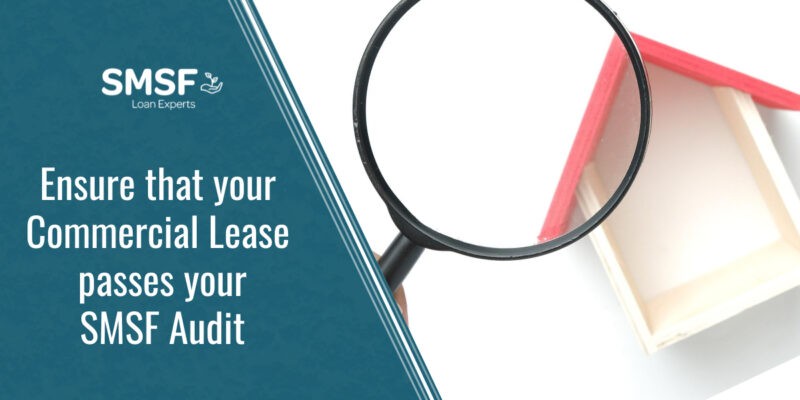There’s no doubt that times have been tough for many businesses since Coronavirus came knocking at our economic door. If you’re one of the many SMSFs who hold commercial property and lease it back to either your own business or a loved one’s, this year’s audit could prove more precarious than ever.
More and more SMSFs are facing an increase in their risk exposure thanks to leasing commercial property — particularly when a related party transaction is involved. We are here to brush up on your compliance knowledge and detail what to look out for to make sure you avoid a significant financial penalty or even criminal prosecution!
What is the compliance risk with related party transactions?
One of the most common compliance issues raised in SMSF audits is commercial property investments and the intricacies of related party transactions. SMSFs come with a complicated compliance web that often requires specialist assistance to navigate. Things have become even more sticky this year, with COVID-19’s impacts catching more people out.
Sole Purpose Test
Where the compliance gear kicks in is when it comes to the sole-purpose test, which stipulates that your self-managed super fund needs to be maintained for the sole purpose of providing benefits to its members or dependents in the event of death or retirement.
What the sole purpose test doesn’t include, is using an SMSF to benefit its members or anyone associated with the fund in the present day. So if you’re across what you can and can’t do with property inside your SMSF, you’ll know this means no living in a residential property that your SMSF purchased, no driving or housing a vehicle that the SMSF owns, and typically also includes not giving mates rates to your commercial property tenant when they’re a related party to your fund.
Arm’s Length Provision
The financial pressure that COVID-19 placed on commercial tenants meant many landlords were providing their tenants with rent reductions, rent waivers or rent deferrals, and SMSFs, of course, wanted to follow suit. Charging a price to a related party that is less than market value usually breaches both the Sole Purpose Test and Arms-Length provision.
The arm’s length provision simply means that you can’t apply ‘mates rates’ to the terms and conditions of your lease to a related party; the terms and conditions of the agreement have to be the same as what they’d be if the lessee were not a related party to the fund, i.e., at the market rate. If you’re temporarily reducing the rent payable due to COVID-19, then presumably that reason would be valid for any tenant, whether a related party or not — so that’s not necessarily the issue. The hidden issue that arises is when you reduce the rent down from the market rate (for whatever reason), the difference between the reduced rent and market value could be seen (on paper) as a ‘loan’ that brings around In-House Assets.
Improper Documentation
Thankfully, the ATO’s approach to compliance for the 2019-20 and 2020-21 financial years was that they would not take action where your SMSF has given a tenant (even one that’s a related party) a temporary rate reduction, waiver or deferral. However, as generous as this compliance concession was, the help hangover is seeing many SMSFs in hot water with improperly documented lease agreements this year.
Even when the change of terms to the lease agreement is temporary, the ATO and ASIC require all parties to the agreement to sufficiently document the changes and reasons for the change. This can be satisfied through either a minute or renewed lease agreement.
A refresher on the important aspects of SMSF Commercial Leasing to related parties
If it’s been some time since you last revisited the ins and outs of commercial leasing to related parties, we bring you back to basics by covering the fundamental aspects of related party lending.
Who is a related party to your SMSF?
The following people are all considered related parties to your Self-Managed Super Fund:
- – All the members of your fund
- – Any associates of fund members, which include
- > the relatives of each member
- > the business partners of each member
- > any spouse or child of those business partners
- > any company the member or their associates’ control or influence
- > any trust the member or their associates’ control.
- – Employers who contribute to your super fund for the benefit of a member, under an arrangement between the employer and a trustee of your fund. These employers are called ‘standard employer-sponsors’.
- – associates of standard employer–sponsors, who include :
- > business partners and companies or trusts the employer controls (either alone or with their other associates)
- > companies and trusts that control the employer.
If you’re wondering who constitutes a ‘relative of a member’, this is who is considered a member’s relative according to the ATO:
- – a parent, grandparent, brother, sister, uncle, aunt, nephew, niece, lineal descendant or adopted child of the member or their spouse
- – a spouse of any individual specified above.
What’s an in-house asset?
An in-house asset is considered to be any one of the following:
- – a loan to, or investment in, a related party of your SMSF
- – an investment in a related trust of your SMSF
- – an asset of your SMSF that is leased to a related party that can be dealt with separately from the land of a business property such as plant equipment, motor vehicles, or even water rights.
The exceptions to in-house assets are:
- – a business real property provided that it is leased between your fund and a related party of your fund.
- – some investments in related non-geared trusts or companies.
- – most investments and loans entered into before 11 August 1999.
It’s important for your self-managed super fund investment strategy to know that in-house assets can not be more than 5% of your SMSF’s total assets.
If it gets to the end of the financial year and you realise that the level of in-house assets in your SMSF exceeds 5% of its total assets, then the trustees of the fund have to prepare a plan in writing on how they will go about reducing them to less than 5%. The plan has to be written before the end of the subsequent financial year.
What is real property?
Real property refers to the property tied to the land that can’t be used separately — such as buildings. SMSF’s are typically not permitted to lease real property to related parties unless that property is being used “wholly and exclusively” in a business. This means that personal use of the property isn’t allowed. Examples of this could be operating a storefront whilst residing in the same property upstairs. However, there are some exceptions to this if the business is a primary production business such as a farm.
Our top tips to ensuring your commercial lease agreement is compliant with this year’s audit
Suppose you have a property that satisfies the above conditions and is currently being leased to related parties. In that case, it is vital to ensure that the lease agreement between your SMSF and the related party is on arm’s length terms and conditions. Here are our top tips to keeping your lease agreement within the rules:
Before you draft your lease agreement, obtain a third party written opinion of how much rent the property would attract on the standard market
The lease agreement should be in writing and be on normal commercial terms. Make sure that you include:
- – the term of the lease agreement
- – stipulate that rent is to be received and at the market rate obtained by the third party (you should also specify if the rental amount is going to be increased with CPI or at what point it is to be reviewed)
- – include how the rent is to be paid and at what frequency
- – outline what action is to be taken should rent not be paid on time
- – cover who is responsible for the payment of rates and insurances etc. (the third party who assisted with market rates should also be able to provide insight as to typical commercial arrangements for the responsibility of these costs, too)
In addition to the lease agreement, it’s essential that you also make sure that all transactions are in accordance with the terms of the lease agreement. As an example:
- – the fund trustee should ensure that the fund receives the rent on the same frequency as the rent is being paid. For example, if the rent is to be paid fortnightly, the fund should receive rent fortnightly.
- – the fund should not bear any costs such as rent or rates if these are stipulated to be covered by the lessee.
- – always increase the rent at the appropriate anniversaries as outlined in the agreement.
- – any insurance policies that are held over the property should always be registered in the name of the fund. If it happens that the lessee’s name is on the policy, the fund has to be noted as an ‘interested party’ on the policy.
- – the lease agreement shouldn’t be allowed to lapse with rent continuing to be received. The lease agreement should always be renewed on its expiry and have an updated third party opinion of the market rental rate to be paid.
As part of the annual audit process, the fund’s auditor will generally wish to review the lease agreement, and the third party’s written opinion of the market rental. So it’s crucial that corners aren’t cut in this process.
At SMSF Loan Experts, we don’t just help you find the right lending structure and loan for your SMSF, we can also help point you in the right direction regarding SMSF Administration and maintenance. With our extended team of SMSF specialists, you can rely on SMSF Loan Experts to ensure that your Commercial Lease passes your SMSF Audit this year — contact us today.









